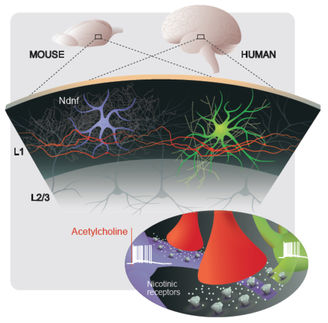Kombucha to kimchi: Which fermented foods are best for your brain?
Advertisement
Many countries around the world have their own staple fermented foods which are ingrained into culture and diet. It can’t be a coincidence that this has happened again and again. It seems logical that fermented foods offer more than a method of preservation.

symbolic picture
computer generated picture
Diet can hugely impact your mental health and previous research has shown that some foods are particularly good at positively impacting your brain. Fermented foods are a source of tryptophan, an amino acid key to the production of serotonin, a messenger in the brain which influences several aspects of brain function, including mood. The foods may also contain other brain messengers (known as neurotransmitters) in their raw form. It’s no surprise then that research has shown that eating fermented foods may have various long- and short-term impacts on brain function, such as reducing stress. But which foods have the biggest impact on brain health?
Researchers at APC Microbiome, University College Cork, and Teagasc (Ireland’s Agriculture and Food Development Authority) in Moorepark, Cork, Ireland are currently working on a large study to finally answer this question. Ramya Balasubramanian and the team at APC compared sequencing data from over 200 foods from all over the world, looking for a variety of metabolites that are known to be beneficial to brain health.
The study is still in it’s initial stages, but researchers are already surprised by preliminary results. Ramya explains, “I expected only a few fermented foods would show up, but out of 200 fermented foods, almost all of them showed the ability to exert some sort of potential to improve gut and brain health”. More research is needed to fully understand which groups of fermented foods have the greatest effects on the human brain, but results are showing an unexpected victor.
“Fermented sugar-based products and fermented vegetable-based products are like winning the lottery when it comes to gut and brain health”, explains Ramya.
“For all that we see on sugar-based products being demonised, fermented sugar takes the raw sugar substrate, and it converts it into a plethora of metabolites that can have a beneficial effect on the host. So even though it has the name ‘sugar’ in it, if you do a final metabolomic screen, the sugar gets used by the microbial community that's present in the food, and they get converted into these beautiful metabolites that are ready to be cherry picked by us for further studies.”
These further studies are what’s next for Ramya. She plans to put her top ranked fermented foods through rigorous testing using an artificial colon and various animal models to see how these metabolites affect the brain.
Ramya hopes that the public can utilise these preliminary results and consider including fermented foods in their diet as a natural way of supporting their mental health and general well-being.





























































